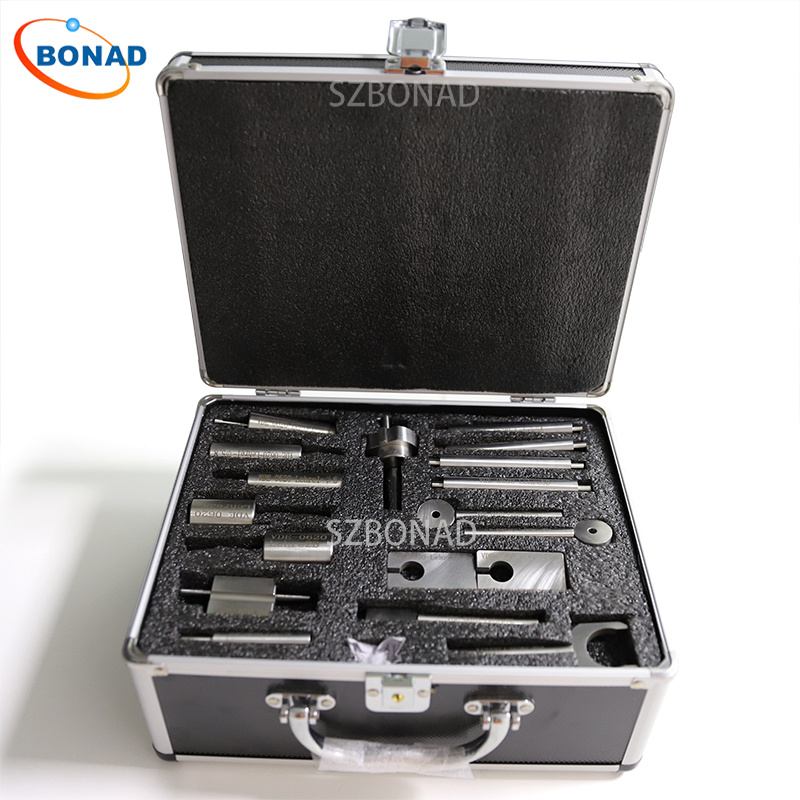Universal Testing Machines (UTMs) are essential tools for understanding material behavior under various stress conditions. These machines play a critical role in ensuring that materials like metals, plastics, rubber, and composites meet the rigorous performance and safety standards required by today’s industries. But how exactly do these machines function, and why are they so crucial?
This article delves into the essentials of UTMs, covering their core components, operational principles, diverse applications, and necessary maintenance practices. This comprehensive guide will demonstrate why UTMs are vital for precise material testing and quality assurance.
Understanding Universal Testing Machines
A Universal Testing Machine, also referred to as a Universal Tensile Tester or Tensile Testing Machine, is a versatile apparatus designed to evaluate the tensile, compressive, and flexural strengths of materials. By applying controlled forces to a sample, it measures properties such as stress, strain, and deformation to ensure compliance with industrial standards.
Definition and Functionality
The UTM is often termed “universal” due to its capability to perform multiple types of tests. It serves as a fundamental tool in material testing. UTMs can test a wide array of materials including metals, polymers, ceramics, composites, wood, and certain forms of concrete and cement.
Industries such as construction, automotive, aerospace, among others rely on these machines for assessing material performance and ensuring reliability.
Key tests include:
- Tensile testing: Evaluates how a material reacts when subjected to stretching.
- Compression testing: Assesses behavior under compressive forces.
- Flexural testing: Examines material performance under bending forces.
If you’ve ever wondered “What is a universal testing machine?”, it is the go-to solution for accurate and reliable material evaluation.
Operational Principles of Universal Testing Machines
UTMs assess material properties by applying controlled forces and observing the response. The process involves several critical steps to ensure accurate results:
- Sample Preparation and Clamping
The test specimen is prepared according to established standards like ASTM or ISO to ensure consistency across tests. The specimen is then securely clamped between the UTM’s grips or fixtures. Proper alignment is crucial to avoid skewed results due to misalignment. - Force Application
Once clamped, the UTM applies force at a specified rate depending on the test type:
- Tensile Tests: The machine pulls the specimen apart to measure tensile strength and elasticity.
- Compression Tests: The machine pushes the specimen to evaluate compressive strength.
- Flexural Tests: The specimen is bent to determine resistance to bending forces.
The actuator moves crossheads at a controlled speed for precise force application.
- Data Collection
During testing, sensors measure applied force while devices like extensometers track deformation. These measurements generate stress-strain curves providing insights into material behavior. - Result Recording
The UTM records the entire process in real-time graphical formats like stress-strain curves aiding engineers in analyzing material performance under various stresses.
Components of Universal Testing Machines
A UTM comprises several key components that collaborate for precise mechanical tests on materials:
- Load Frame: Provides structural stability during testing with robust vertical columns housing crossheads.
- Crosshead: Movable component applying force controlled by an actuator.
- Load Cell: Sensor measuring applied force converting it into electrical signals.
- Grips/Fixtures: Securely hold specimens preventing slippage during tests.
- Control Unit/Actuator: Manages operations monitoring test progress with components like hydraulic power units.
- Extensometer: Measures elongation/deformation crucial for calculating properties like tensile strength.
- Software: Advanced software collects/analyzes data generating detailed reports/graphs.
Applications of Universal Testing Machines
UTMs are versatile tools used across various industries:
- Materials Science: Aid in evaluating properties like tensile strength aiding material innovation.
- Manufacturing Quality Control: Ensure product consistency identifying defects before market release.
- Research & Development: Facilitate exploration/testing new materials/designs simulating stress conditions.
- Construction Industry: Evaluate building materials ensuring compliance with building codes.
- Automotive Industry: Test components ensuring safety regulation compliance/performance reliability.
- Medical Device & Biomedical Industry: Evaluate medical devices ensuring safety/effectiveness in demanding applications.
- Aerospace Industry: Test materials/components enduring high stress/extreme conditions meeting safety standards.
- Electronics/Consumer Products: Ensure durability evaluating mechanical properties/materials/packaging.
- Energy & Power Industry: Assess materials used in energy generation/distribution ensuring performance reliability.
- Academic/Educational Institutions: Provide hands-on experience teaching future engineers about mechanical properties/testing methods/data analysis bridging theory/practice gaps.
Operating Universal Testing Machines
Proper operation ensures accurate results/prolongs lifespan following these steps:
- Set Up Machine
- Prepare Specimen
- Install Specimen
- Input Test Parameters
- Run Test
- Review Results
Different types may have varying procedures; always refer manufacturer guidelines confirming safety measures are in place.
In summary UTMs offer invaluable insights into how materials behave under different stresses making them indispensable tools across numerous fields requiring high-performance/safety standards from their products/materials tested using these versatile machines!


